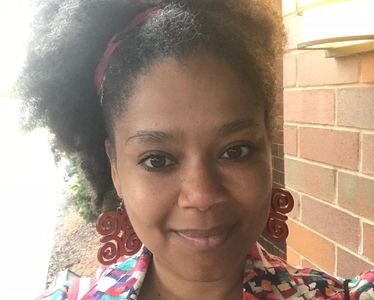Last fall, I posted my interview with Kimya Dennis, Assistant Professor at Salem College, who was teaching the sociology course, The Childfree, and using my book, The Baby Matrix, as part of the curriculum. Now that the course is over, I asked her a few more questions about her experience of teaching this course. Here is part II of the interview:
What do you think students learned from The Childfree course?
I began the course by saying “I am not telling you not to have children”. There were students in the course who have decided not to have children, students who already have children, students who aspire to have children, and students who are undecided. Therefore, we maintained a respectful tone when discussing family types, lifestyle choices, and reproductive decisions.
Students learned about reproductive choices, rights, and freedoms and to challenge the notion that having children is a requirement or “the default”. This highlighted the importance of conscious decision making because having children should ideally be done out of choice rather than out of force or obligation. Students became increasingly aware of variation in reproductive rights and reproductive choices across culture, societies, gender, sexual orientation, socioeconomic status, and race and ethnicity.
The course also emphasized awareness of perceived costs and benefits of reproductive choices including the complexities of pregnancy, childrearing, and adoption. The question of “why do ‘I’ want a child” should be asked as much as, if not more than, people ask the childfree “why do ‘you’ not want a child”. Students also learned that while most humans have the biological ability to reproduce and are able to do so with minimal insight and forethought, pronatalism and reproduction are about more than biology.
What did you, as the professor, learn from The Childfree course?
This course was an excellent experience in teaching about pronatalism and reproductive choices to a more diverse audience. It is important to remember that most people, including people who do not have children by choice or by circumstance, are unfamiliar with the terms and phrases used in “the childfree community”. It is therefore necessary to not make assumptions and to be careful in the tone of the message as to avoid sounding dismissive of other viewpoints, including the more dominant viewpoints.
The students strengthened my ability to illustrate relationships between heterocentrism, traditional gender norms, patriarchy, definitions of family, and reproductive rights, freedoms, and choices. This was also a reminder of the prevalence of pronatalism which makes it so commonplace and “normal”. Pronatalism must be made unfamiliar and problematized. This is best accomplished through historical examples and present-day examples from daily interactions with other people and media images, all of which range from the overt to the covert.
Explain the “Conference on Reproductive Rights and Freedoms” and what topics students presented at the conference.
The “Conference on Reproductive Rights, Choices, and Freedoms” was a class-based interdisciplinary conference in which students researched and presented on a range of topics. This project encouraged students to learn more about topics they perhaps would not normally research and gave students a glimpse at how professional conference sessions are organized and conducted.
Students presented historical and contemporary analyses of open adoption and closed adopted; rights of birth parents and adoptive parents; racial inequalities in the adoption system; gender inequalities in the adoption system; legalities and perspectives on gay adoption; women’s reproductive rights; and reproductive rights and choices in Latin America, Africa, Ireland, India, and China.
On the last day of class, how did you conclude The Childfree course?
The course ended with a reminder of the importance of reproductive rights, freedoms, and choices and being a conscious, well-informed decision maker. I concluded the course by saying, one last time, “I am not telling you not to have children”.
Thank you, Kimya!
Kimya N. Dennis is an Assistant Professor and Coordinator of Criminal Studies at Salem College in Winston-Salem, North Carolina. Her sociological interests include the childfree and definitions of “family”, the intersection of race and gender, and the living wage. Her criminological interests include interdisciplinary study of suicide, mental health, and Crisis Intervention Training (CIT) for law enforcement.
For information on her studies of childfree Black women and Black men contact Kimya at [email protected].

